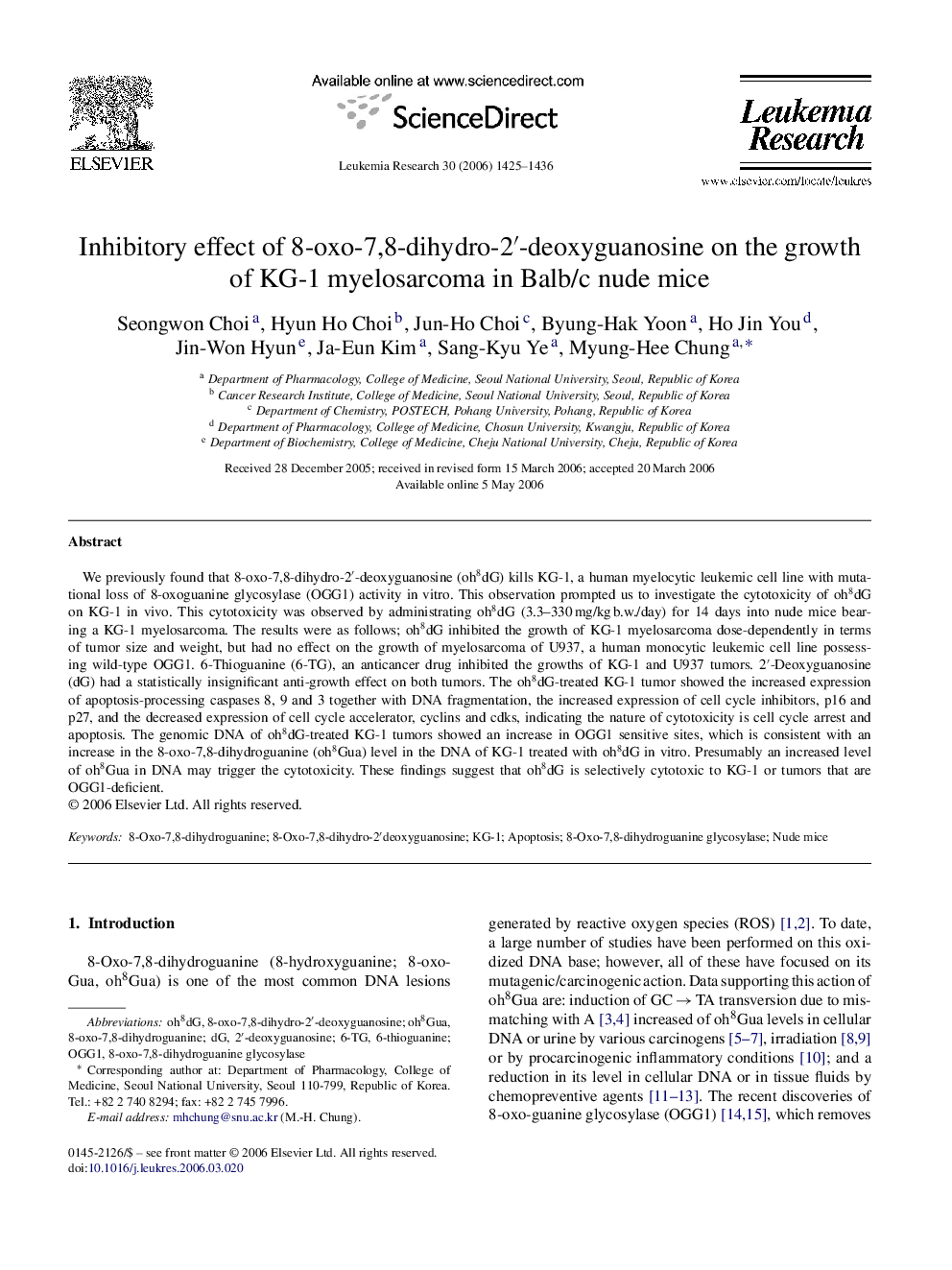| Article ID | Journal | Published Year | Pages | File Type |
|---|---|---|---|---|
| 2138773 | Leukemia Research | 2006 | 12 Pages |
We previously found that 8-oxo-7,8-dihydro-2′-deoxyguanosine (oh8dG) kills KG-1, a human myelocytic leukemic cell line with mutational loss of 8-oxoguanine glycosylase (OGG1) activity in vitro. This observation prompted us to investigate the cytotoxicity of oh8dG on KG-1 in vivo. This cytotoxicity was observed by administrating oh8dG (3.3–330 mg/kg b.w./day) for 14 days into nude mice bearing a KG-1 myelosarcoma. The results were as follows; oh8dG inhibited the growth of KG-1 myelosarcoma dose-dependently in terms of tumor size and weight, but had no effect on the growth of myelosarcoma of U937, a human monocytic leukemic cell line possessing wild-type OGG1. 6-Thioguanine (6-TG), an anticancer drug inhibited the growths of KG-1 and U937 tumors. 2′-Deoxyguanosine (dG) had a statistically insignificant anti-growth effect on both tumors. The oh8dG-treated KG-1 tumor showed the increased expression of apoptosis-processing caspases 8, 9 and 3 together with DNA fragmentation, the increased expression of cell cycle inhibitors, p16 and p27, and the decreased expression of cell cycle accelerator, cyclins and cdks, indicating the nature of cytotoxicity is cell cycle arrest and apoptosis. The genomic DNA of oh8dG-treated KG-1 tumors showed an increase in OGG1 sensitive sites, which is consistent with an increase in the 8-oxo-7,8-dihydroguanine (oh8Gua) level in the DNA of KG-1 treated with oh8dG in vitro. Presumably an increased level of oh8Gua in DNA may trigger the cytotoxicity. These findings suggest that oh8dG is selectively cytotoxic to KG-1 or tumors that are OGG1-deficient.
